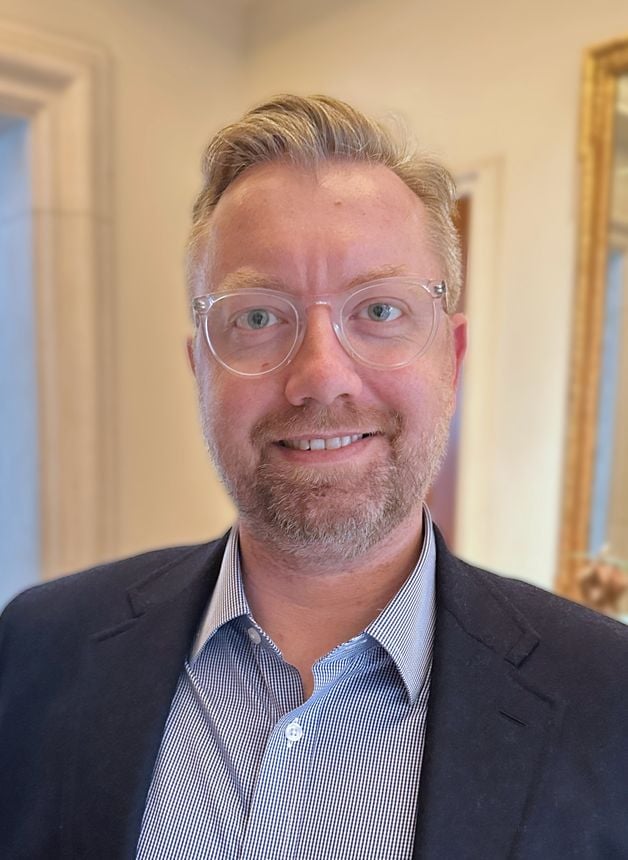Fast-fashion purveyor Shein has been going through something of a makeover in the past two years. Its main LinkedIn page now lists its home base as Singapore, rather than China, where the business was founded in 2008, confirming a report early last year that the company had permanently relocated. Late last year, it announced heavy investments in its supply chain as part of an effort to enhance its sustainability profile and potentially counter unflattering allegations about its treatment of factory workers. Then at the beginning of this year, Shein upgraded its supply chain again, and said it was beefing up its Shein X incubator program with plans to add 1,000 more designers this year to the emerging talent incubator. To date, it has already invested $55 million in the effort and onboarded nearly 3,000 designers.
Yet the company has also battled publicly with its detractors. Last year, The Guardian ran a story detailing extensive artist accounts of design theft, and in April, U.S. lawmakers raised concerns about Shein’s compliance with trade restrictions and intellectual property laws. Then in May, U.S. lawmakers asked the SEC to halt a Shein IPO over concerns about forced labor.
Shein has categorically denied all the allegations.
However, it’s certainly an interesting time to be Peter Pernot-Day. He started with Shein at the end of 2021 as chief privacy officer and deputy general counsel, and moved into his current position as global head of strategy and corporate affairs at the beginning of this year. His new job will focus on developing and implementing global corporate strategies and public policies, as well as overseeing corporate affairs and digital services.
Fashion Dive recently spoke with him about his plans to implement a broader circular strategy at Shein, and how he’s balancing sustainability with customer demand for on-trend fashion.
The following interview has been edited for length and clarity.
Fashion Dive: What does circularity mean for you, in particular, when it comes to fast fashion?

Peter Pernot-Day, Shein’s global head of strategy and corporate affairs.
Courtesy of Shein
Peter Pernot-Day: As an on-demand business, what we are looking for in terms of circularity is an opportunity to give our customers a product that’s produced using very low waste. That’s the pre-production side. And then on the post-production side, that means giving the consumers opportunities to either resell a garment through our Shein Exchange process or — and I think this is where the industry really needs to be headed — is looking at next-generation materials and the use of deadstocks in particular, to be able to promote circularity [and] afterlife so that we have a full circle, so garments are not just worn and then eventually discarded. They’re worn and either reintroduced to resale or reintroduced through recycled fabrics of some kind. And that’s really where we’re focused as a company at this moment.
When you talk to people about on-demand, how does the consumer understand that? How do you explain that?
Pernot-Day: The on-demand business model is a key feature of our business. And really what it means is that what we do is we will produce between 10 to 100 copies of any given garment, and we will put that up for sale on our website. And if we detect a demand signal that is responsive to that product, so people are liking it or lots of people are adding it to their shopping cart, people are buying it at a particularly quick pace, we know ‘Okay, this particular product, this particular design, these particular fabrics are of interest to our customers.’ And then we take that signal and we go back to our federated network of suppliers. We identify, using technology, a supplier who has the capability and capacity to produce that garment at scale, based on what we projected demand will be. And then we produce only enough copies to meet that actual demand. And we can repeat that multiple times if demand continues to stay strong. If there isn’t demand, then we can discount the original 100 or 200 pieces and clear those off of our global inventory relatively quickly. And that’s allowed us to lower our inventory levels to the very low single digits.
When you talk about circularity and the afterlife of products, how important is durability for something like that?
Pernot-Day: We try to produce very high-quality garments, and that’s a key objective of our company, to produce clothing that’s attractive and high-quality. We have a quality control department that’s focused on improving the quality of our garments all the time. It works with our suppliers to give them feedback on garments and how to make garments that are longer-lasting. Another thing that’s interesting is that the internal data we have actually suggested our garments are worn quite a bit longer than common perception. You know, some will say that our garments are disposable. I’ve heard that thrown at us before. And really, what is going on is people are purchasing our clothes and wearing them for sometimes multiple months, sometimes multiple years. And then there are often customers reselling them on our Shein Exchange. As of March 2023, we had over a million active users on exchange who are participating in the Shein ecosystem as part of the resale model. And we don’t have a retail exchange in Europe yet, we’re going to be setting one up, but some of the garments that we produce are actually on sale for higher than we originally sold them for through French vintage resellers, because our collections are so small, and some pieces sell out and are quite unique.
How do you balance this desire for circularity and sustainability with the need to keep up with trend cycles?
Pernot-Day: To us, I think circularity is the key, where garments and materials can be reused and repurposed and redesigned in multiple ways is, in our view, really the solution. We don’t see the emerging trends of democratization, of self-expression, of self-empowerment, of body positivity that have arisen in the last 40 years, as being negative trends. And we see fashion as a form of being able to express those values. They are by nature evolutionary, so people’s tastes are going to change, and new communities are going to emerge, new values are going to be celebrated. And if we’re going to be a part of that, that means that clothing will also have to evolve. So a solution that’s entirely focused on the past and on reusing existing clothes, your existing garments, and in very consistent and perhaps conservative ways. I think it poses a challenge for those two trends. So to us, to embrace that new trend, we think circularity is really the wave of the future.
Has consumer demand for transparency changed? Is it impacting you?
Pernot-Day: I think our customers are very diverse. And many of our customers are very, very focused on environmental and sustainability, and concerned about corporate social responsibility. And we as a company are, too. I think many of our customers are with us because we have very fresh and fascinating looks. You know, some of our partnerships that we’ve done with some designers and with some influencers have been very, very successful. I think some of our customers are with us because we embrace body positivity. So I don’t think that we, as a company, our approach isn’t to try to segment and chase our customers. We also want to authentically express our values and that’s where our sustainability efforts come from. I’m passionate about sustainability. I know that our leadership team is passionate about sustainability, and that’s what drives them. And our customers respond to that or they don’t.
Some of our customers, that’s very, very important to them, and we try to engage with them. I think a great example of that is our campus ambassador program, [which is] an opportunity for some of our most committed fans to actually work with us in a mutually collaborative way to sell our products and learn more about how we conduct our business and have very detailed interactions with, sometimes, members of our senior leadership team.
What have you learned from some of your past challenges and mistakes?
Pernot-Day: One of the things that we’ve learned is the importance of localization. This gets to your question about environmental impact, because the closer you are to your customers and the closer your supply chain is to your customers, the more resilient it is. And that is very good for business. But at the same time, it also has very positive effects on net greenhouse gas emissions, so it’s positive for the planet. And then finally, it kind of meets our goal of being able to listen carefully to our customers and be customer-led. If you’re in those regions where your customers are, you can really hear and listen and tailor your offering to that customer cohort. And that’s allowed us to be, you know, really a community of people who are creative and responsive to customers, who empower customers in their local communities in a way that’s much more effective, I think, than trying to have a one-size-fits-all across the entire globe.
We announced a major effort in Brazil to de-risk our supply chain and move parts of production into Brazil to meet the Brazilian market demand. We’ve stood up a major facility in Poland where we have a significant warehouse operation. We’ve got teams in the European Union, we have a very large team in the United States, I’m a member of that team. We have very large teams throughout the world that are trying to reach our customers where they’re at. And I think you’re going to see us accelerate that trend in 2023. Further in 2024, I think that’s a key strategic objective for the company.
So where can you do better?
Pernot-Day: One of the areas is circularity. There are things that we could do to help improve and drive the use of next-generation fabrics, the reuse of deadstocks. I think our Shein Exchange is a great first step, but I think it could be improved, and we’re looking at ways to improve it. And we’re learning from the experience we’ve had, despite its success. Those are all areas where we’re constantly trying to evolve our approach to be a better and more responsible corporate citizen. That’s why we set things like our emissions target for 2030. We wanted to have a reduction in total emissions that was achievable, that was realistic, and that was science-based. Those are all things where we’re headed. And I think they reflect that we can continue to improve as we get down that road.
What are the barriers to that?
Pernot-Day: Material sciences is one of those areas. We need to see some developments in how to use deadstock. And I think that’ll be something that we’re going to be very excited to share in the near future. We’ve also stood up a very significant testing lab in China, where we’re able to do material testing and next-generation manufacturing, and share that with our supply chain. Those are other areas where we’re excited to see some positive changes.
Is it mostly a question of science, or is it a question of time?
Pernot-Day: I think it’s a combination. Science is progressing. Costs are lowering. And the time and training necessary to implement these technologies is evolving. I would say it’s a combination of factors.
And how will you measure success in terms of your circularity efforts?
Pernot-Day: In terms of that, we’re going to look at how much of our products we can continue to manufacture with more and more circular products, more and more recycled polyester. Things of that nature are all things that we’re looking forward to reporting on as we move forward in our journey.











